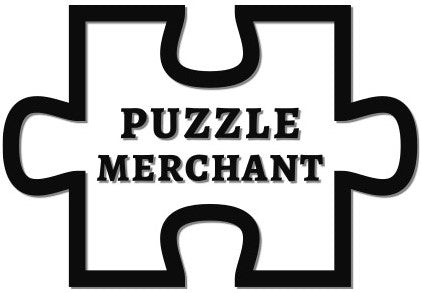Introduction:
In a world dominated by digital screens and instant gratification, traditional toys and games that promote cognitive development are more valuable than ever. Jigsaw puzzles, with their timeless appeal and educational benefits, stand out as an exceptional tool for enhancing cognitive skills in children. In this article, we'll explore the cognitive benefits of jigsaw puzzles and how they contribute to the intellectual growth and development of young minds.
Understanding Cognitive Development in Children:
Before delving into the specific benefits of jigsaw puzzles, it's important to understand the concept of cognitive development in children. Cognitive skills encompass a wide range of mental processes, including problem-solving, memory, attention, spatial awareness, and logical reasoning. These skills form the foundation for academic success, social interaction, and everyday tasks, making them essential for overall development.
Spatial Awareness and Visual Perception:
One of the key cognitive skills enhanced by jigsaw puzzles is spatial awareness, which refers to the ability to understand and navigate the physical world in relation to oneself. As children manipulate puzzle pieces and fit them together to form a complete picture, they develop a deeper understanding of spatial relationships, shapes, and dimensions. This process requires visual perception, as children learn to recognize patterns, colors, and details within the puzzle image, sharpening their observation skills and attention to detail.

Problem-Solving and Critical Thinking:
Jigsaw puzzles present children with a series of challenges that require problem-solving and critical thinking skills to overcome. From selecting the right pieces to figuring out their correct placement within the puzzle, children must use logical reasoning and trial-and-error strategies to progress. As they encounter obstacles and setbacks, they learn to persevere and adapt their approach, developing resilience and problem-solving techniques that are transferable to other areas of life.
Fine Motor Skills and Hand-Eye Coordination:
The physical manipulation of puzzle pieces plays a crucial role in the development of fine motor skills and hand-eye coordination in children. As they grasp, rotate, and place pieces, they refine their dexterity and control over small muscle movements. This process strengthens the connections between the brain and muscles, laying the groundwork for activities such as writing, drawing, and playing musical instruments. By engaging in hands-on puzzle play, children hone their motor skills in a fun and engaging way.
Attention Span and Concentration:
Completing a jigsaw puzzle requires sustained attention and concentration over an extended period of time. As children immerse themselves in the task, they learn to focus their attention on the puzzle at hand, blocking out distractions and staying engaged until the puzzle is complete. This process strengthens their attention span and concentration abilities, which are essential for academic success and everyday tasks that require sustained mental effort.
Memory and Cognitive Flexibility:
Jigsaw puzzles provide an excellent opportunity for children to exercise their memory and cognitive flexibility. As they work on a puzzle, they must remember the shapes, colors, and patterns of various pieces and recall this information as they search for matching counterparts. Additionally, they must be flexible in their thinking, considering multiple possibilities and adjusting their approach as new information emerges. This cognitive flexibility is crucial for adapting to new situations and solving problems creatively.

Language and Social Skills:
Beyond the cognitive benefits, jigsaw puzzles also promote language development and social skills in children. As they collaborate with peers or adults to solve a puzzle, they engage in verbal communication, exchanging ideas, giving instructions, and asking for help when needed. This social interaction fosters language development and promotes cooperation, teamwork, and empathy. Puzzle play also provides opportunities for children to practice turn-taking, sharing, and respecting others' perspectives, essential skills for navigating social relationships.
Tips for Maximizing the Cognitive Benefits of Jigsaw Puzzles:
To maximize the cognitive benefits of jigsaw puzzles for children, consider the following tips:
- Choose puzzles that are age-appropriate and match the child's skill level to ensure a satisfying and challenging experience.
- Provide a variety of puzzle themes and images to capture children's interests and stimulate their curiosity.
- Encourage children to work independently or in small groups, allowing them to develop problem-solving and social skills at their own pace.
- Celebrate their progress and achievements, providing positive reinforcement and encouragement to boost their confidence and motivation.
- Incorporate puzzle play into daily routines as a fun and educational activity that the whole family can enjoy together.
Conclusion:
In conclusion, jigsaw puzzles offer a wealth of cognitive benefits for children, promoting spatial awareness, problem-solving, fine motor skills, attention span, memory, and social development. As children engage in the process of puzzle-solving, they not only have fun but also lay the foundation for lifelong learning and intellectual growth. By incorporating jigsaw puzzles into playtime and educational activities, parents, teachers, and caregivers can nurture the cognitive skills that are essential for success in school and beyond. So, the next time you're looking for a stimulating and enriching activity for children, consider the timeless appeal of jigsaw puzzles and the myriad ways they enhance cognitive development.
About the writer: Will Roya is a lifelong gaming and puzzle enthusiast. He is the founder of Puzzle Merchant and author of the book Card Night.

Last update date: 3/21/24

